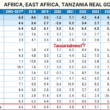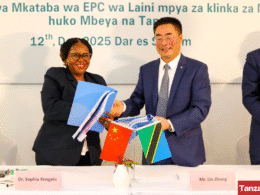Plans are currently underway for the world’s second largest brewer of beer, SAB Miller, to introduce its fourth factory to the Tanzania industry sector by November of this year, thus boosting its overall beer production by approximately 22 percent.
According to the company’s 2008 report, SAB Miller currently owns 52.83 percent of Tanzania Breweries, with the rest of the company being divided between East African Breweries Ltd. of Kenya, with 20 percent, and the International Finance Corp. and the Government of Tanzania each holding 4 percent.
At this time, approximately 6 percent of the company’s shares are traded on the Dar es Salaam Stock Exchange, with the rest of the shares being controlled by domestic pension and social security funds.
Last year, the company, recorded an overall production of 3.25 million hectoliters from its breweries located in Dar es Salaam as well as in the northern cities of Arusha and Mwanza.
In a recently published Bloomberg report, the managing director of Tanzania Breweries Ltd., Robin Goetzsche, said that, upon completion, the overall cost for the construction of the latest facility will total USD 55 million and is expected to have the capacity to produce 600,000 hectoliters of beer annually.
“Our volume over the last few years has grown about 5 percent per annum,” said Goetzsche, “we expect continued growth, and with it further expansion.”
The recent Bloomberg report also indicated an announcement by Ms. Goetzsche that Tanzania Breweries is currently preparing for an additional expenditure of approximately USD 24 million in order to upgrade the breweries in Arusha and Mwanza and to add a further 36,000- bottles-per-hour line at its main plant in Dar es Salaam by October.
This announcement follows the recent opening of a USD 20 million 48,000-bottles-per-hour line in Dar es Salaam last month.
In addition, the barley project manager for the company, Bennie Basson, has also explained plans to purchase approximately 9,000 metric tons of barley from farmers in the country’s northern regions of Kilimanjaro, Arusha and Manyara for processing at its Moshi-based malting plant, Bennie Basson.
According to Mr. Basson, an increase in planting in the southern regions of Iringa, Ruvuma, Rukwa and Mbeya will likely result in an increased grain production of about 50,000 tons over the next five years.
“In the next three to five years we hope to have full self- sufficiency in barley production in Tanzania for our breweries,” said Ms. Goetzsche.










